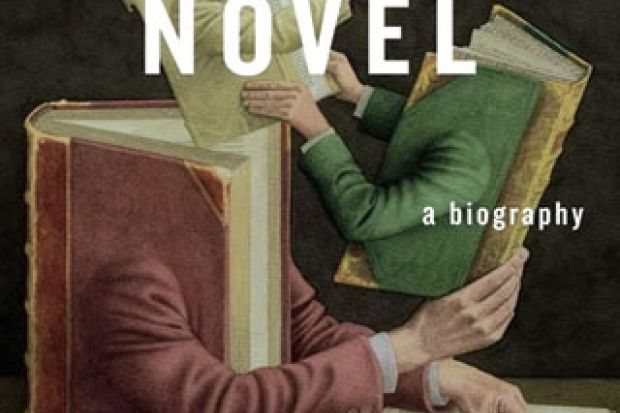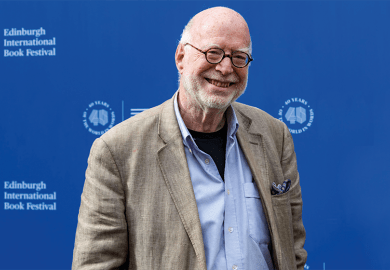Michael Schmidt is a fascinating figure in contemporary British and world literature: founder of one of the major poetry presses and of PN Review, and holder of various academic posts in poetry and creative writing. He taught briefly at the university where I took my first degree, and friends who studied with him were awestruck. Now he has written what claims to be a “biography” of the novel. It isn’t. It’s something much more peculiar and interesting. It’s a cliché that the internet is replacing books, and that Wikipedia is replacing reference works, but this is the first “post-Wikipedia book” I have come across. Why?
First, it’s enormous. It’s not for reading from cover to cover; it’s for the guilty pleasure (or student duty) of “dipping in” (Schmidt writes of Philip K. Dick: before “the internet came into our studies, Dick surfed the Encyclopedia Britannica and Paul Edwards’ Encyclopedia of Philosophy, finding and forming associations”). And this book is indeed encyclopedia-like: you get a brief life of a writer (“the Joyces lived a spartan existence”); you get a quick account of their major books. But most importantly, you get associations. Schmidt cites Jonathan Franzen in the introduction: “when I write…I feel like a member of a single large virtual community in which I have dynamic relationships with other members of the community, most of whom are no longer living”. This book is Schmidt’s necessarily enormous and personal vision of what those dynamic relationships are: it explores, say, what holds Cervantes, Henry Fielding and Tobias Smollett in association with the seafaring tales of C. S. Forester and Patrick O’Brian, or what links, for Schmidt, William Golding, Margaret Drabble, Ian McEwan and J. G. Ballard.
You don’t have to agree with these affiliations, but they are both illuminating and fascinating. And because the book makes no pretence to objectivity, the prose is engaging and witty. Schmidt makes a virtue of not offering a “theory of the novel” (although his claim that novels survive over time because of something “to do with form, language, invention and an enduring resistance to cliché” seems a low-level “theory” to which most people could subscribe). It is exactly these personal, debatable, critical associations done over such length that make this distinctive from any extant online resource.
But more than this – and this is the book’s key selling point – Schmidt has chosen to supplement his own open and generous judgements only with the views of other literary figures. The book’s criticism or guidance comes from “artist-practitioners”: Joan Didion on V. S. Naipaul, W. H. Auden on Wyndham Lewis, Margaret Atwood on Martin Amis and so on, hundreds and hundreds of writers on writers. A very few critics – Frank Kermode, Lorna Sage – do slip in but only, as it were, by accident or because, like Gabriel Josipovici, they are also novelists. Part of a literary critic’s job, and in recent years it has been seen as a dominant part perhaps, is to set a literary work in its historical context. In contrast, this marvellous book achieves another critical aim: setting writers firmly in the context of other writers, aiming – as Harold Bloom said of his own poetry criticism – “to follow the invisible paths” that lead from novel to novel.
The book is occasionally nasty to critics. That’s fine; writers hate critics. But one inadvertent bit of nastiness is harder to take: none of the many, many citations from writers on writers have references. While this serves to reduce the volume’s overall length, it does mean that the setting of the citation can’t be checked and thus the book is much, much less useful for students or (here’s the real rub) their lecture-writing and recommended-reading-setting teachers. Perhaps the publisher could be persuaded to put the references online.
This apart, if there is a future for encyclopedic books “after” the internet, this is a model of how it should be done.
The Novel: A Biography
By Michael Schmidt
Harvard University Press, 1,200pp, £29.95
ISBN 9780674724730
Published 28 May 2014
Register to continue
Why register?
- Registration is free and only takes a moment
- Once registered, you can read 3 articles a month
- Sign up for our newsletter
Subscribe
Or subscribe for unlimited access to:
- Unlimited access to news, views, insights & reviews
- Digital editions
- Digital access to THE’s university and college rankings analysis
Already registered or a current subscriber? Login





